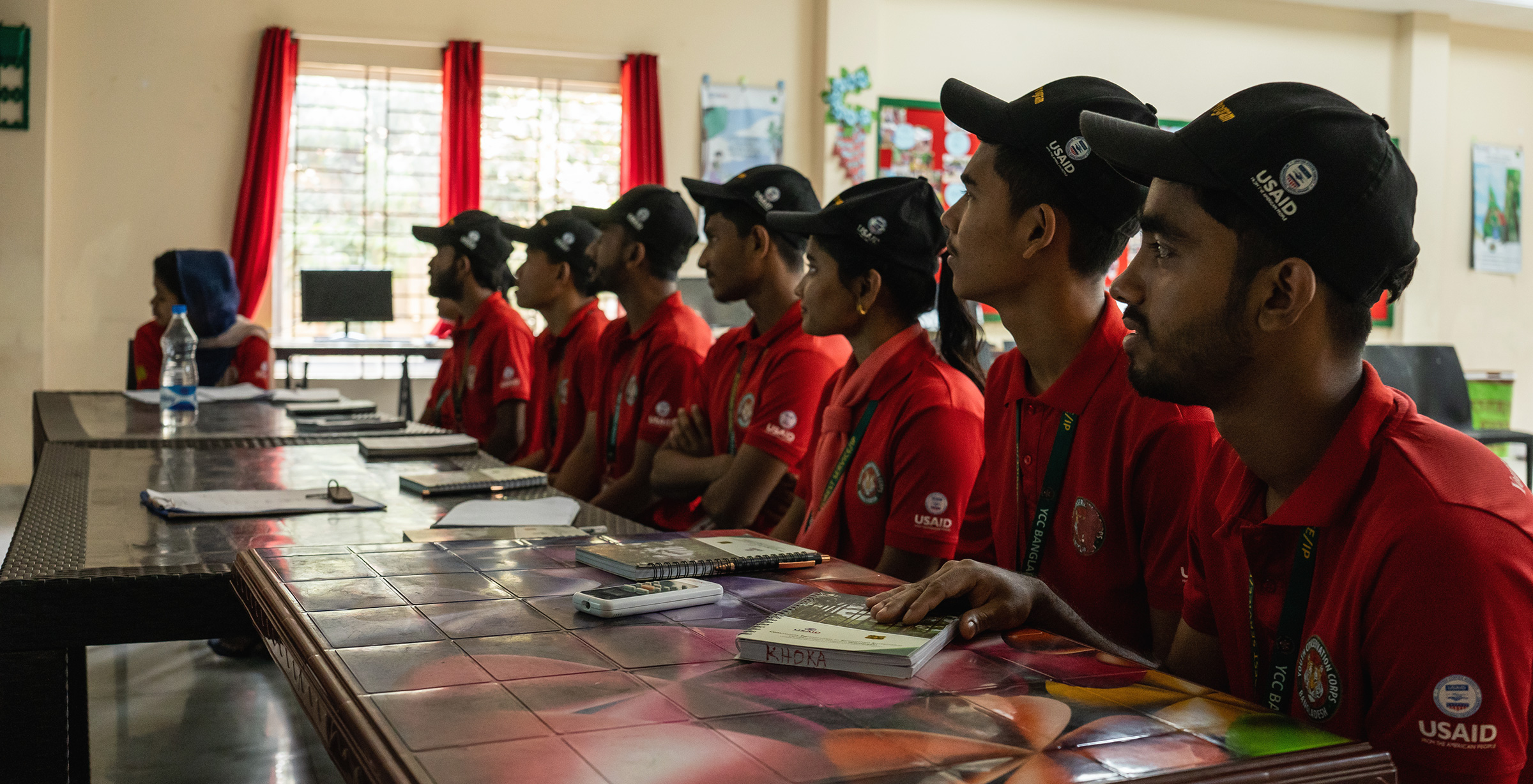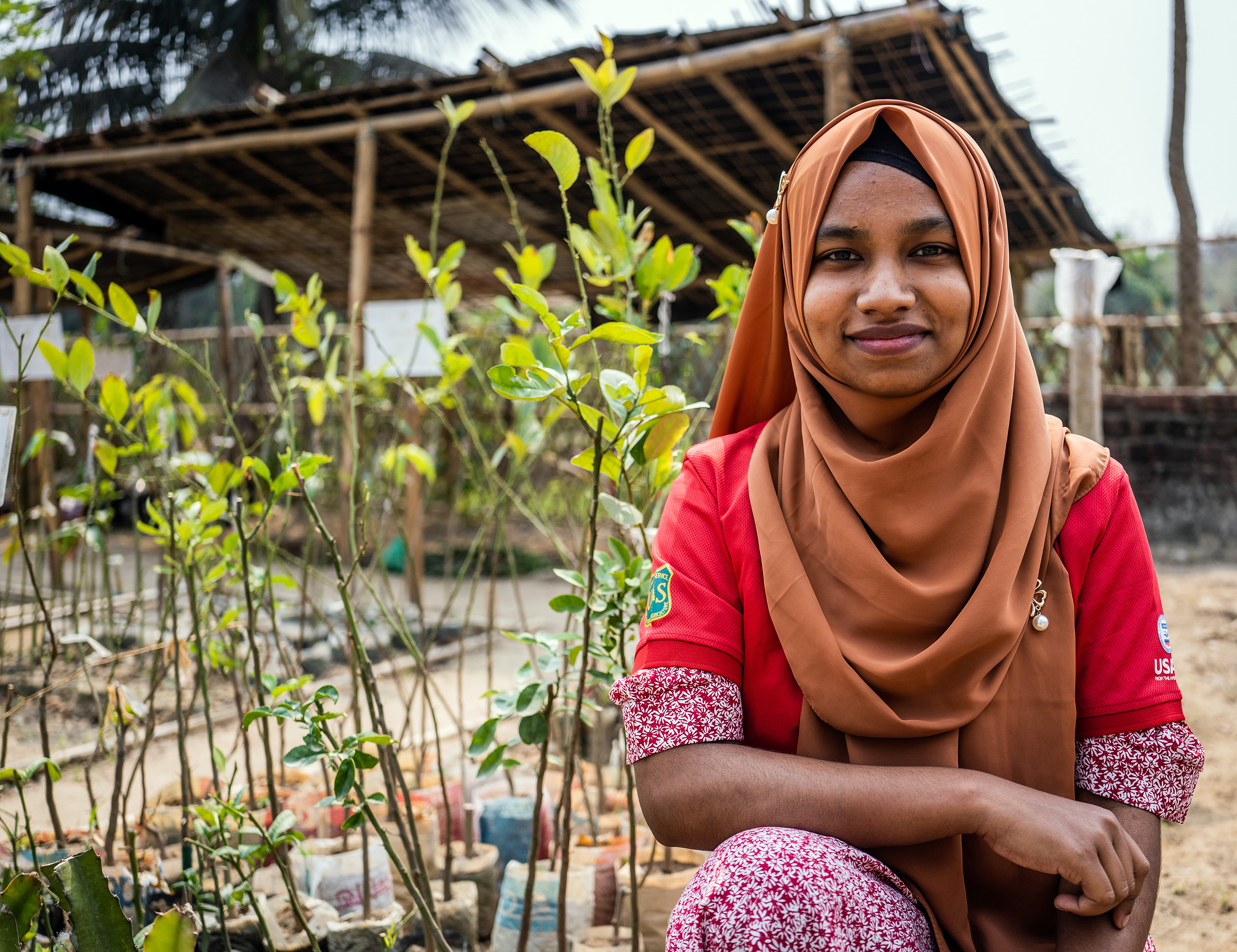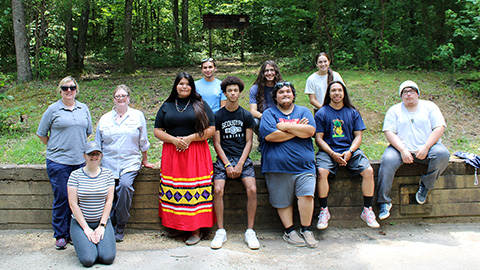
“Eyes on me!” … “Eyes on you!”
This energetic call and response echoes throughout the Cox’s Bazar campus of the Bangladesh Youth Conservation Corps (YCC). It serves as both a call to attention and a reminder of commitment. Forty students answer in earnest unison.
YCC Bangladesh is a six-month job readiness program that caters to 18–25-year-olds from underserved communities. YCC families make less than $200 a month or are unemployed.

YCC participants spend five months on the Cox’s Bazaar campus learning a trade such as agriculture, tailoring, hospitality, or home electronics. They study life skills such as the importance of looking someone in the eye during an interview and how to incorporate wellness — fitness, diet, and hygiene — into their lives. They also lead and participate in environmental stewardship projects and finish the program with a one-month internship that includes professional networking events and mentorship.
Helping families
“Everyone is happy I did the program,” said Noor Jannat Tarmin.

Noor now runs a tailoring shop from home with her mom. She teaches her younger siblings about hygiene and its connection to health — both physically and mentally. At YCC she was allowed to dance. She now dances in the house with her sisters.
By project completion, six cohorts, or 240 students, will have completed the U.S government-supported program. The U.S. Agency for International Development (USAID) funds the project. The USDA Forest Service International Programs Office implements it. The YCC program is modeled after the Forest Service’s Youth Conservation Corps and Job Corps programs, which help American youth find meaningful careers and gain skills to conserve the nation’s natural resources.
Improving their community
There are new fish-shaped waste bins along the coast of Cox’s Bazar because of Risat Kawsar Ishan and Mizanur Rahman. The YCC graduates also built a new toilet in their village and cleaned the canal that captures fresh water. They involve school children in their environmental campaigns, teaching what they learned at YCC.
“We conducted an environmental needs assessment for our community,” said Ishan, and then they acted on it. Their actions, with community involvement, had an immediate and positive impact on the health and hygiene of their small village.

When they aren’t teaching kids about littering or doing community projects, the two young men cultivate and sell oyster mushrooms to restaurants up and down the coast.
The four-year YCC program only directly reaches 240 youth by project completion, but the graduates are positively impacting the lives of many more individuals through community welfare programs, school outreach, and new businesses.
A safe place for women to thrive
Tobiba Khanom says she cried for several days after graduation. She didn’t want to leave. She had never experienced an environment where young men and women could work together and respect one another.
“Our sirs at YCC did not discriminate. They included us. We did the same tasks,” said Tobiba.

Tobibia is from the hills above Cox’s Bazar; 1 million Rohingya refugees reside at a camp close to her family’s home. She wears her short sleeved red YCC polo shirt over her traditional conservative dress of flowing fabric that covers her from head to toe.
Tobiba’s parents attended YCC orientation meetings and learned that the young men and women work together. Her father was okay with it. Her mother was not. In the end, Tobiba was able to attend, and she says that her mom was happy with the vocational skills she learned, but she wasn’t happy with the relationships. She was afraid people would talk.
“Working together with boys is not possible at home. At YCC they were my friends. I was their sister, and they saw me as capable,” said Tobiba.
For Tobiba, being treated with respect — by male participants and YCC staff — was the most impactful aspect of YCC, and she loved to wake up early and exercise. She says she still exercises every morning, hidden in her room.
Tobiba is building her own nursery with the skills she learned in the green agricultural course. She currently sells ornamental plants online.
Learning a trade
Shahedul Islam Sagor specialized in electrical house wiring at YCC. His one-month YCC-supported internship led to continued work with the internship provider and then an interview with the Cox’s Bazar police department. He showed them his YCC electrical house wiring certificate as proof of his training. He got the job. He says that “of course I like my job” and that a formal government job offers respect and stability.

The YCC program is all about respect — respect for oneself, respect for each other, and respect for the environment and community within which participants live.
Catching on
In the fall of 2023, after a year of operation, the YCC program received nearly 800 applications for 40 spots. Word had gotten out that YCC Bangladesh was transforming lives.
Learn more about USAID’s work in gender equality and education
Learn more about the Job Corps Civilian Conservation Center in the U.S.





